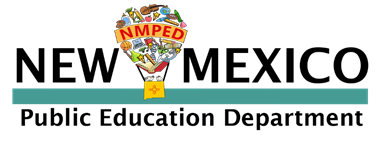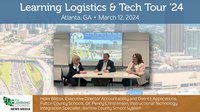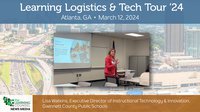State to take over Houston ISD by replacing school board and superintendent – By Aliyya Swaby, The Texas Tribune
In a move that is unprecedented in scope, Texas state officials announced Wednesday they plan on taking over the state’s largest school district, yanking power from Houston Independent School District’s elected school board members to “prevent imminent and substantial harm to the welfare of the district’s students.”
Texas Education Commissioner Mike Morath sent a letter to Houston ISD Interim Superintendent Grenita Lathan and Board President Diana Davila giving two principal reasons for the decision: the school board’s “failure of governance” and the repeated low academic performance of Wheatley High School, which received its seventh failing rating this year. In addition to appointing a board of governance to replace the elected school board, Morath will also appoint a superintendent to lead the district. The timeline of the takeover action is unclear.
“Given the inability of the board of trustees to govern the district, these sanctions are necessary to protect the best interests of the district’s current and future students,” he wrote. The decision means the state will be taking over its largest public school district, which contains more than 270 schools and educates more than 200,000 students.

New Mexico picks first early childhood education secretary – By Morgan Lee, The Associated Press
New Mexico tapped an official with the District of Columbia on Wednesday to lead the state’s new Early Childhood Education Department in an effort to improve wellbeing among infants and toddlers and their preparedness for school.
Elizabeth Groginsky is leaving her job in Washington, D.C., as an assistant superintendent of early learning to become New Mexico’s first early education Cabinet secretary.
Gov. Michelle Lujan Grisham announced the appointment Wednesday. Lujan Grisham indicated that she’ll press the Legislature in 2020 to spend more on support for early education initiatives through a dedicated investment fund.
The new department brings services currently provided by four different departments under one roof with oversight of home-visiting programs that can start with prenatal counseling, child-care assistance and prekindergarten.

State lawmakers approve work experience for college credit, endorse $20 million higher ed pilot – By Michael Karlick, Colorado Politics
The Making Higher Education Attainable Interim Study Committee on Monday signed off on three proposals to get students successfully through higher ed institutions, even before they step foot on campus.
A bill passed unanimously would direct the Colorado Commission on Higher Education to incorporate work experience into post-secondary academic credit.
“It’s helping people who have decided a little later in life that they would like to go to college but aren’t sure if they can get in and go,” said Rep. Barbara McLachlan, D-Durango. “This helps give them credit for work experience that belongs to what they would like to get their degree in, and any kind of certificates they have along the way.”
The policies must prioritize career and technical education in fast-growing industries. The new system honoring work experience is anticipated to take effect after 2024. McLachlan’s bill did not estimate the cost to colleges and universities, nor does it appropriate money to them.

Students Think Lectures Are Best, But Research Suggests They’re Wrong – By Youki Terada, Edutopia
Students are often “poor judges” of their own learning, according to researchers in a study recently published in the Proceedings of the National Academy of Sciences. Strategies that require low cognitive effort—such as passively listening to a lecture—are often perceived by students to be more effective than active strategies such as hands-on experimentation and group problem-solving. The group dynamic can make students feel frustrated and “painfully aware of their lack of understanding,” but the study concluded that the more effort and struggle involved—hallmarks of a student-centered, active approach—the more students learned.
In the study, researchers divided large introductory physics courses at Harvard University into two groups. For both groups, instructors primarily lectured for the first 11 weeks of the 15-week course. Starting in the 12th week, however, instructors in the first group continued to lecture, while instructors in the second group switched to a student-centered, active approach that encouraged students to solve problems in small groups. At the end of each class meeting, students took a multiple-choice exam to test their understanding of the material and to gauge their feelings about their learning. They considered statements such as “I enjoyed this lecture,” and “I feel like I learn a lot from this lecture.”
Students in all courses were taught using identical materials; the difference was the level of interactivity between groups.












